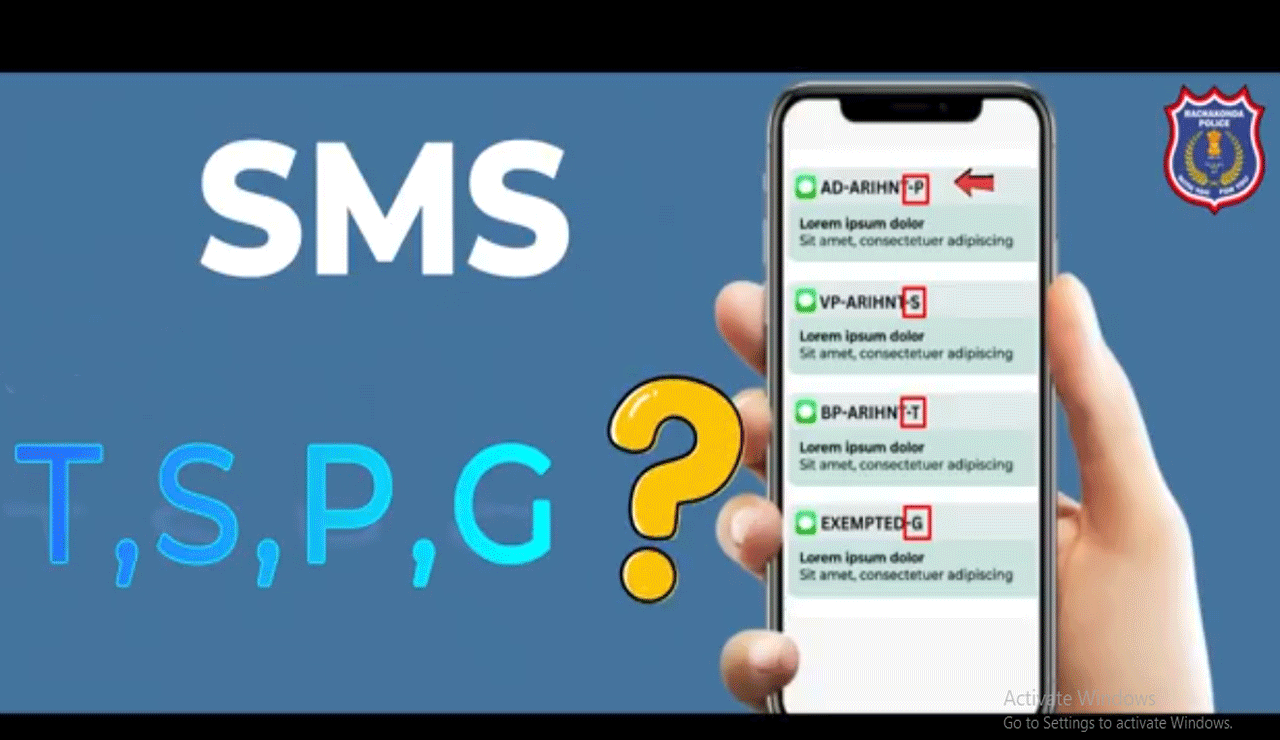Think Before You Click: T/S/P/G Messages Could Be a Cyber Trap, Warns Rachakonda Police
With the rapid advancement of technology, cyber criminals are increasingly misusing digital platforms for illegal activities. According to recent police reports, around 80% of cybercrimes are being committed through mobile phones, making smartphones a major tool for fraud.

With the rapid advancement of technology, cyber criminals are increasingly misusing digital platforms for illegal activities. According to recent police reports, around 80% of cybercrimes are being committed through mobile phones, making smartphones a major tool for fraud.
Table of Contents
Telangana Police Launch Awareness Initiatives
In response, the Telangana Police have intensified their efforts to curb cyber crimes. They are conducting awareness programs across all age groups—from school children to senior citizens—to educate the public and prevent them from falling prey to online scams.
Also Read: Telangana Phone Tapping Case: Former Top Cop to Be Questioned by SIT
As part of this initiative, the Rachakonda Police recently shared an informative video on their official X (formerly Twitter) account, highlighting the various forms of cyber fraud.
Don’t Trust Every Message You Receive
The video emphasizes the importance of being cautious about suspicious SMS messages. If an SMS ends with codes like T, S, P, or G, it may appear authentic but can still be fake.
According to TRAI (Telecom Regulatory Authority of India):
- T stands for Transactional
- S stands for Service
- P stands for Promotional
- G stands for Government
Though these messages may seem legitimate, cyber fraudsters are now imitating real institutions and companies to mislead users.
Hidden Links Could Lead to Financial Loss
Cyber police warn that these messages may contain malicious links. A single click on such a link can result in theft of personal data or financial loss. Users are advised to think carefully before clicking on any unknown or suspicious message.
“Always pause before opening a message or clicking a link,” the police advise.
Banks Never Share Links or Request Personal Details
The video also clarifies that authentic banks or financial institutions never share clickable links via SMS, nor do they ask for personal or sensitive information.
If you receive a suspicious message, immediately:
- Call the cyber crime helpline 1930
- Or report online at www.cybercrime.gov.in
Rachakonda Police Assure Continued Support
The Rachakonda Police assure the public that they are always ready to help ensure citizen safety online. In their video post, they strongly urge people to stay alert and avoid falling victim to digital fraud
